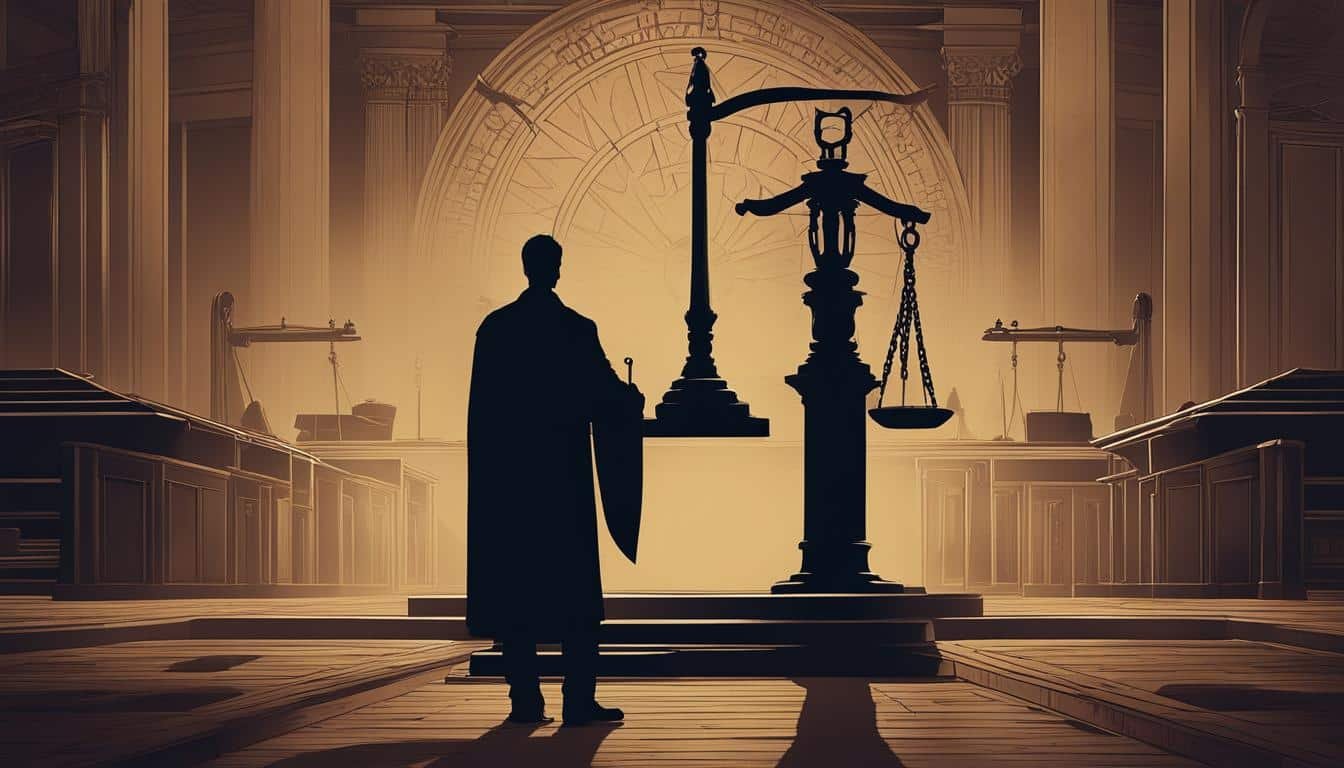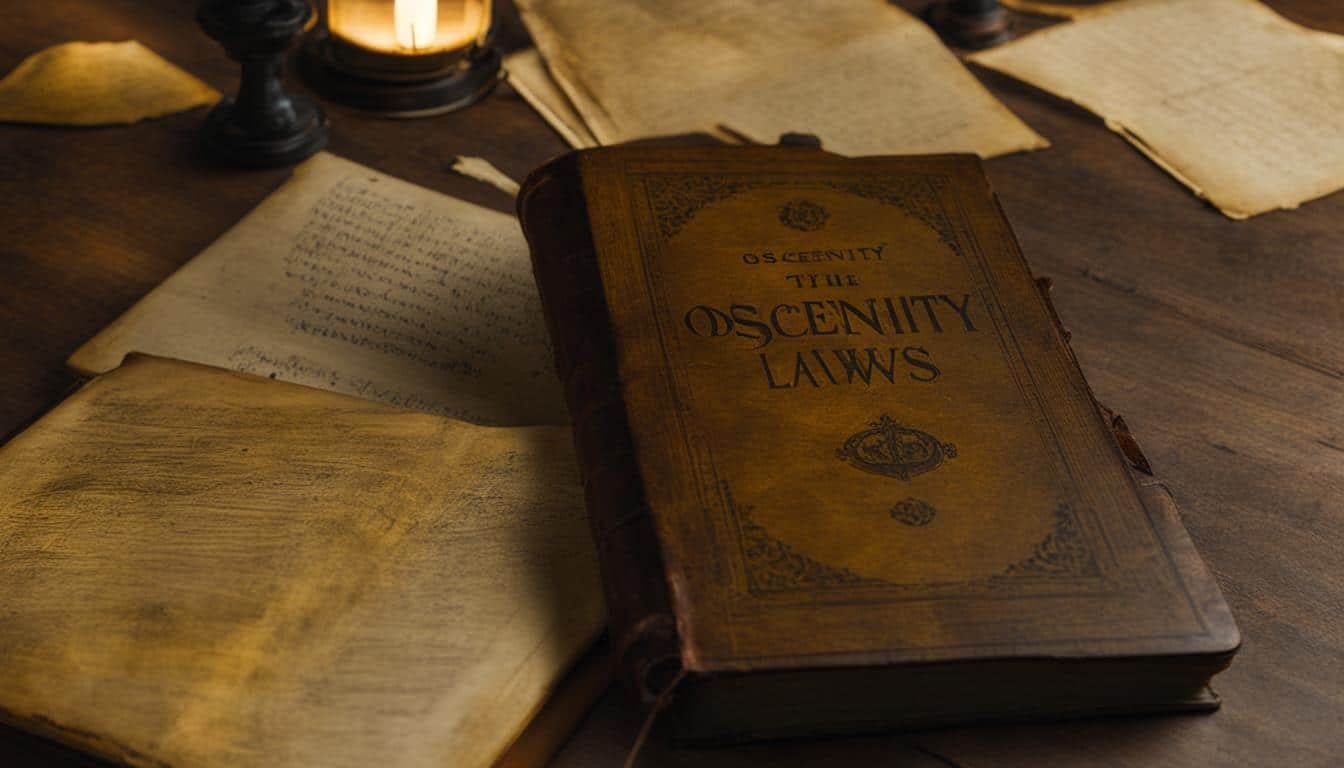When it comes to obscenity crimes, understanding the legal consequences can be a complex task. Laws differ between federal and state jurisdictions, and navigating through them requires knowledge and guidance. In this article, we will provide you with helpful tips on handling obscenity crime charges and effectively managing the legal repercussions.
Key Takeaways:
- Understand that federal and state laws on obscenity crimes may vary, requiring careful consideration of jurisdiction.
- Prosecutors have discretion when choosing which obscenity cases to pursue, influenced by various factors.
- The First Amendment of the U.S. Constitution exempts obscenity and child pornography from protection.
- The Miller test is used to determine whether a work is obscene based on specific criteria.
- Legal penalties for obscenity crimes can be severe and differ between state and federal laws.
The Constitutional Principles of Obscenity Crimes
In order to fully understand obscenity crimes and their legal consequences, it is essential to consider the constitutional principles that underpin them. The First Amendment of the United States Constitution guarantees freedom of speech and the press. However, it is important to note that obscenity and child pornography are not protected under this amendment.
The Supreme Court has established the Miller test, which serves as a benchmark for determining whether a work is obscene or not. The Miller test consists of three criteria: first, whether the material appeals to the prurient interest; second, whether it depicts or describes sexual conduct in a patently offensive manner; and third, whether the material lacks serious literary, artistic, political, or scientific value. These criteria help to define the boundaries of what is considered obscene under the law.
Furthermore, the Constitution also allows for zoning and licensing regulations of pornography dealers, as long as they do not unduly restrict access to lawful speech. This means that local governments can implement regulations to control the location and operation of pornography establishments, as long as they do not violate the First Amendment rights of individuals.
The Constitutional Principles of Obscenity Crimes
| First Amendment Protection | Miller Test |
|---|---|
| Obscenity and child pornography are not protected under the First Amendment. | Material is considered obscene if it appeals to the prurient interest, depicts sexual conduct in a patently offensive manner, and lacks serious value. |
| The First Amendment protects freedom of speech and the press, but there are exceptions for obscene material. | The Miller test helps define the boundaries of what is considered obscene under the law. |
| Zoning and licensing regulations are allowed for pornography dealers, as long as they do not unduly restrict lawful speech. | Regulations can control the location and operation of pornography establishments, without violating First Amendment rights. |
In summary, the constitutional principles of obscenity crimes provide the framework for understanding the legal consequences associated with such offenses. The First Amendment protection for obscenity is limited, and the Miller test helps in determining whether material is obscene. Zoning and licensing regulations are permissible as long as they do not infringe on individuals’ rights to lawful speech. By considering these principles, individuals can navigate the complexities of obscenity crimes more effectively.
Penalties and Defenses for Obscenity Crimes
Violating obscenity laws can have serious legal consequences. In Texas, the penalties for promoting or possessing obscene material or devices with intent to promote can range from a state jail felony to a Class A misdemeanor, depending on the circumstances. Meanwhile, federal obscenity crimes encompass a wide range of offenses, including possession with intent to sell or sale of obscene material, mailing obscene matter, importation or transportation of obscene matters, mailing indecent matter, broadcasting obscene language, and production and transportation of obscene matters for sale or distribution.
Understanding the specific penalties associated with each offense is crucial when facing obscenity charges. The legal landscape surrounding obscenity crimes can be complex, which is why it’s essential to seek guidance from an experienced obscenity defense lawyer. A knowledgeable attorney can help navigate the intricacies of Texas and federal obscenity laws and work towards reducing or dismissing the charges against you.
When charged with an obscenity crime, it is important to have a strong defense strategy in place. An obscenity defense lawyer will thoroughly examine the evidence, scrutinize the prosecution’s case, and identify any potential weaknesses or constitutional violations. They will also explore possible defenses, such as arguing that the material in question does not meet the legal definition of obscenity or challenging the constitutionality of the law itself. With their expertise and advocacy, an obscenity defense lawyer can fight for your rights and mitigate the potential legal consequences you may face.
Source Links
- https://www.everycrsreport.com/reports/95-804.html
- https://www.mcconathylaw.com/criminal-defense/sexual-offenses/obscenity/
- https://www.ncbi.nlm.nih.gov/pmc/articles/PMC5231412/







